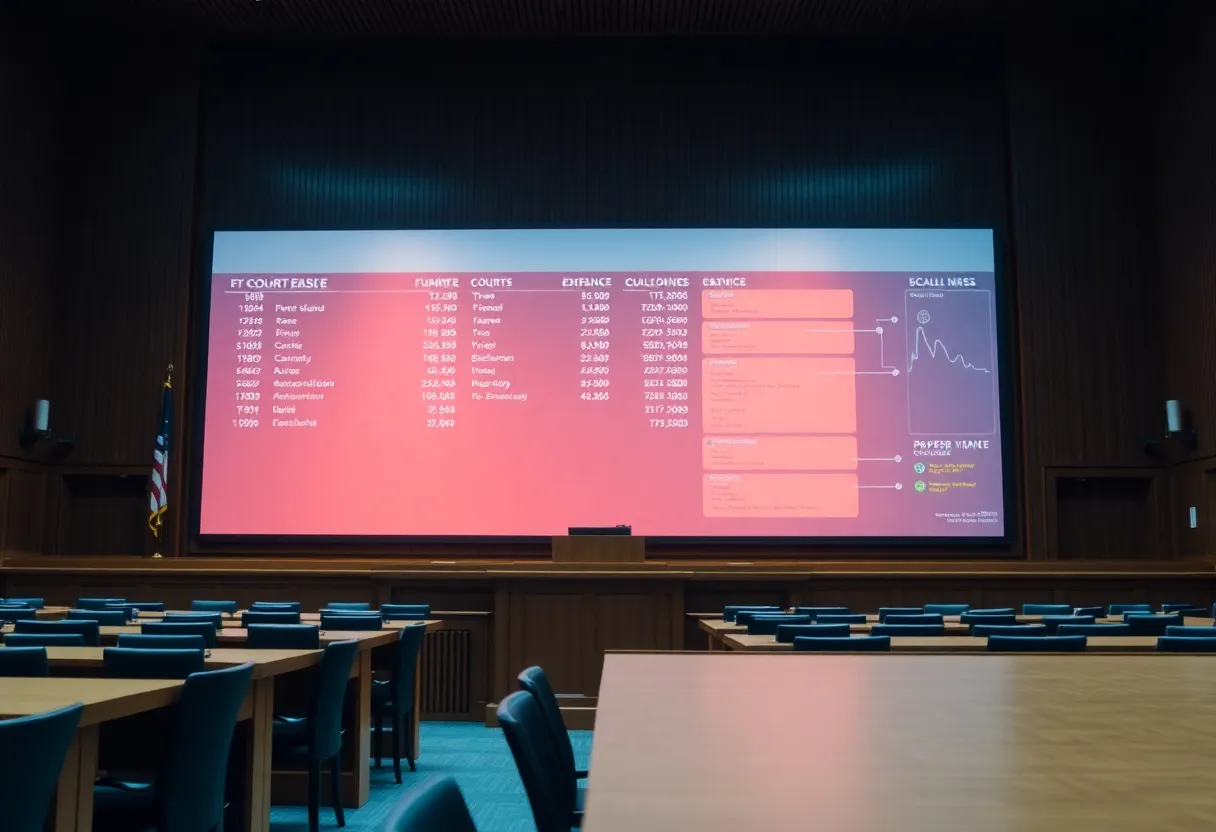News Summary
The recently launched eCourts system in North Carolina is facing a federal lawsuit alleging it has caused unlawful arrests and extended detentions. The lawsuit was filed by numerous plaintiffs affected by issues stemming from the system’s implementation. U.S. District Judge William Osteen has ruled that claims against the software developer and Mecklenburg County Sheriff can proceed, highlighting significant challenges in the transition to digital court management. As more plaintiffs come forward, the future of eCourts remains uncertain amid these legal battles.
The eCourts System Faces Legal Challenges Over Unlawful Arrests
There’s a significant buzz in the legal community as a federal lawsuit is shaking up the recently launched eCourts system in North Carolina. This digital court records and case management tool, designed to streamline the judicial process, is now under scrutiny. The lawsuit is making headlines as it claims that issues within the system have contributed to unlawful arrests and the extended detention of individuals in custody.
Who’s in the Legal Hot Seat?
The lawsuit was initially filed by a group of around a dozen plaintiffs, all of whom experienced troubles following the rollout of eCourts in February 2023. As it turned out, the system, which has expanded to 62 counties with plans for further implementation by fall 2025, faced significant challenges right at the start. U.S. District Judge William Osteen recently ruled that the lawsuit can proceed against Tyler Technologies, the company behind eCourts, and the Mecklenburg County Sheriff, Garry McFadden.
However, not all defendants will remain in the fray. Judge Osteen dismissed Wake County Sheriff Willie Rowe from the case, citing “statutory immunity” regarding his execution of warrants. This decision highlights the complex legal landscape surrounding law enforcement and technology.
What Are the Core Allegations?
According to the plaintiffs, the eCourts system has not only been a source of frustration but has also led to serious repercussions. Allegations include software and human errors resulting in individuals being arrested multiple times for the same warrants. In addition, many detainees reportedly spent extra time in jail, unnecessarily prolonging their suffering while waiting for justice.
Complaints filed suggest that dozens of individuals were stuck for longer than necessary in the Mecklenburg County jail right after eCourts launched. The implications are serious: many feel that their rights have been violated due to the mishaps associated with this new system.
Blame Shifting: Who’s at Fault?
In the eyes of the plaintiffs and the judge, the fault lies not just with the software developer, Tyler Technologies. Judge Osteen acknowledged that the plaintiffs have provided sufficient evidence to suggest that the company failed to deliver a defect-free software system. Furthermore, the Mecklenburg Sheriff’s Office is also being criticized for inadequate training provided to deputies on how to properly use the eCourts software, which the suit claims has further led to constitutional infringements.
Interestingly, the lawsuit initially named leaders from the state Administrative Office of the Courts, but those individuals have since been dropped from the case. As it stands now, though, the plaintiffs are on a mission to expand their lawsuit to incorporate even more individuals who feel they were unjustly affected by the launching of eCourts.
Additional Developments
The latest court hearing has allowed the plaintiffs to amend their complaint, paving the way for a new wave of motions and responses. A deadline set for April 9 is looming for any new motions to dismiss. One particularly troubling point raised is the allegations of excessive jail time due to problems with the eCourts system, including claims about the wrongful revival of warrants dating back to 2001.
What’s Next for eCourts?
The transition from a traditional paper-based court system to a modern digital processing tool is no small feat, and eCourts was implemented with the noble aim of improving efficiency in North Carolina’s judicial process. However, as this lawsuit unfolds, it’s clear that there are some serious hurdles yet to overcome. As the court process continues, many will be watching closely to see how these legal challenges impact the future of eCourts and, more importantly, the individuals living under the weight of its implementation.
Deeper Dive: News & Info About This Topic
HERE Resources
North Carolina’s eCourts System Faces Federal Lawsuit
Additional Resources
- WRAL News
- Wikipedia: Electronic court
- Yes! Weekly
- Google Search: North Carolina Electronic Courts
- Greensboro News & Record
- Google News: North Carolina eCourts lawsuit
Author: STAFF HERE NOVI WRITER
The NOVI STAFF WRITER represents the experienced team at HERENovi.com, your go-to source for actionable local news and information in Novi, Oakland County, and beyond. Specializing in "news you can use," we cover essential topics like product reviews for personal and business needs, local business directories, politics, real estate trends, neighborhood insights, and state news affecting the area—with deep expertise drawn from years of dedicated reporting and strong community input, including local press releases and business updates. We deliver top reporting on high-value events such as Motor City Comic Con, Michigan State Fair, and Novi Home and Garden Show. Our coverage extends to key organizations like the Novi Chamber of Commerce and Novi Community Foundation, plus leading businesses in automotive, technology, and manufacturing that power the local economy such as Gentherm, Stoneridge, and Daifuku North America. As part of the broader HERE network, including HEREDetroitMI.com, HEREGrandRapids.com, HERENorthville.com, and HEREPlymouth.com, we provide comprehensive, credible insights into Michigan's dynamic landscape.






